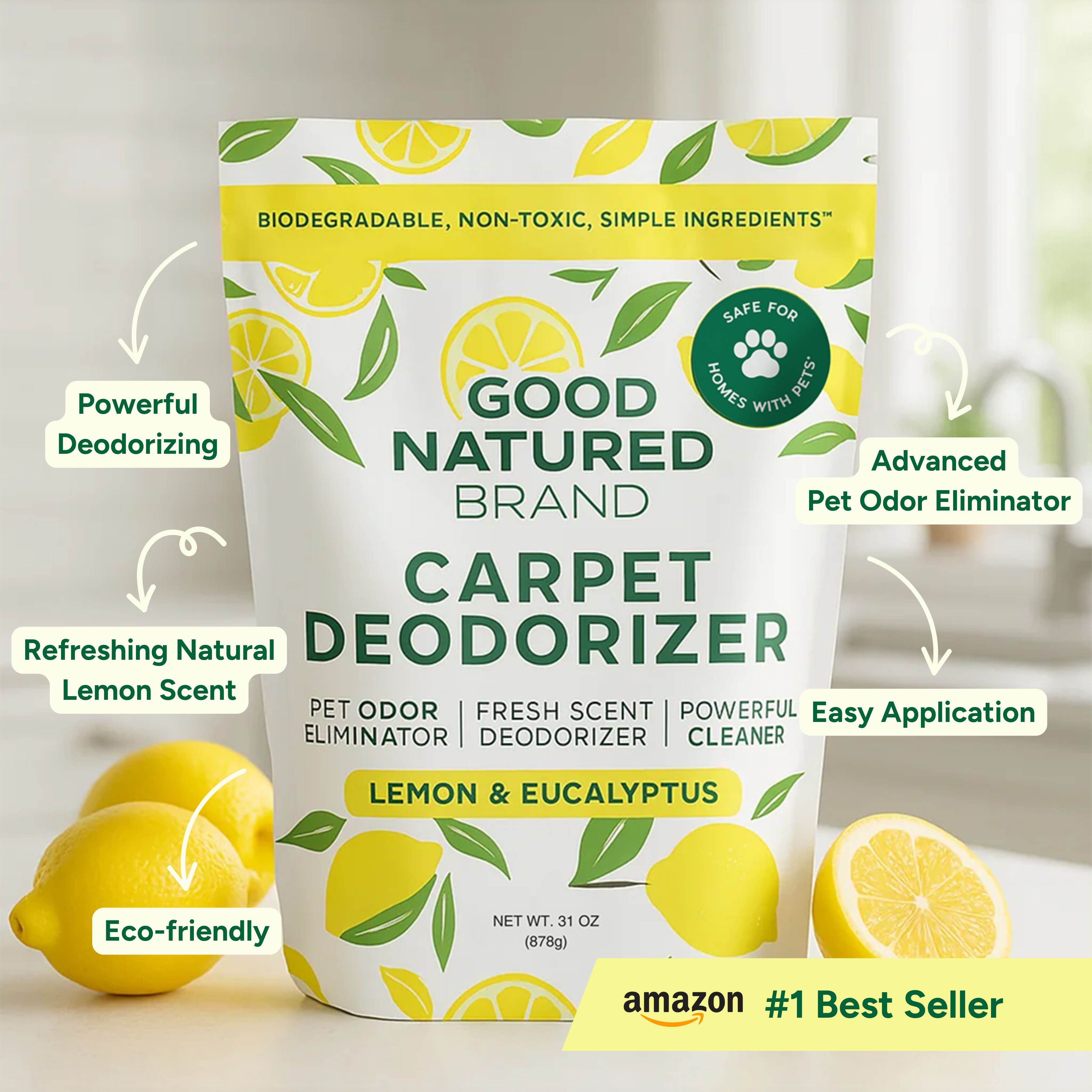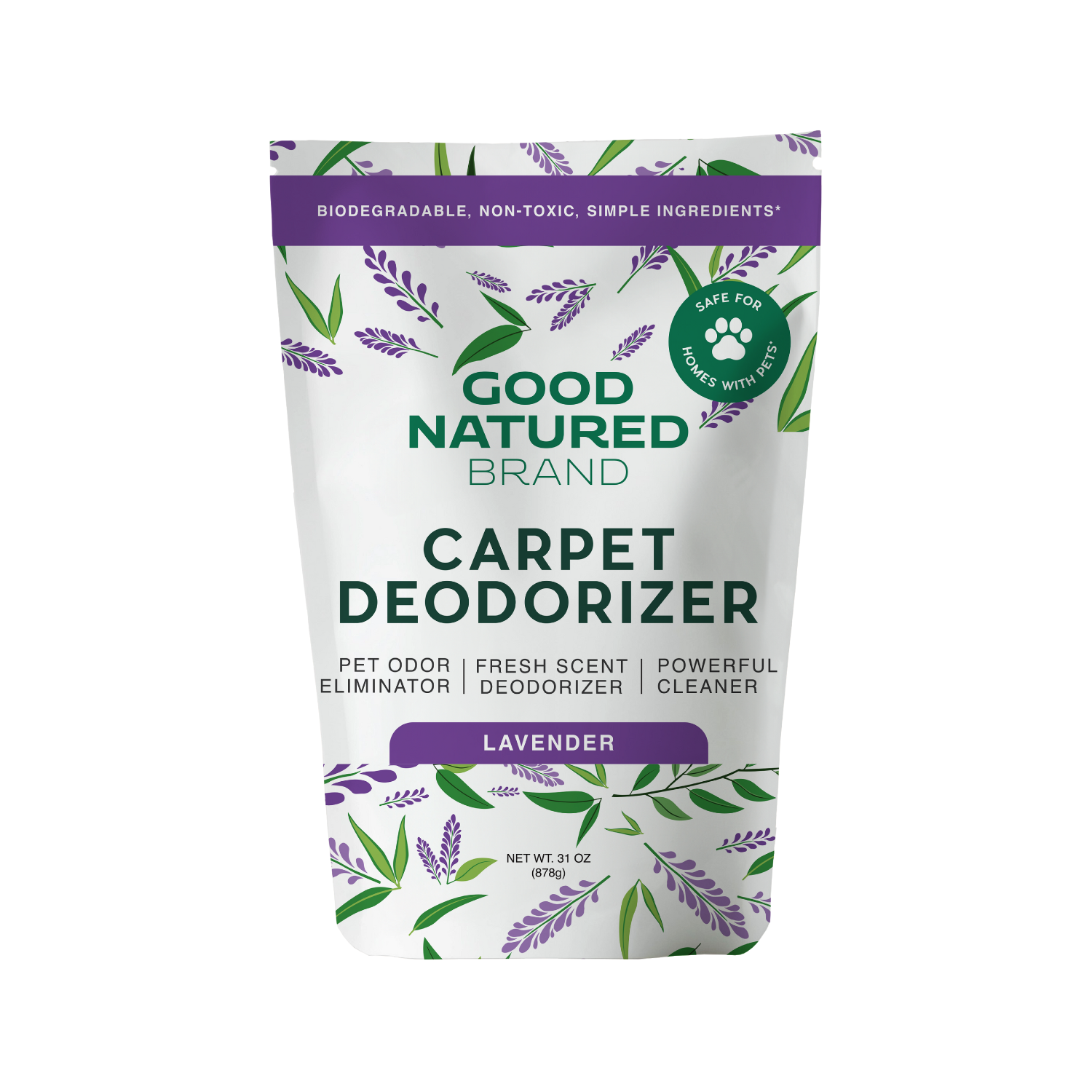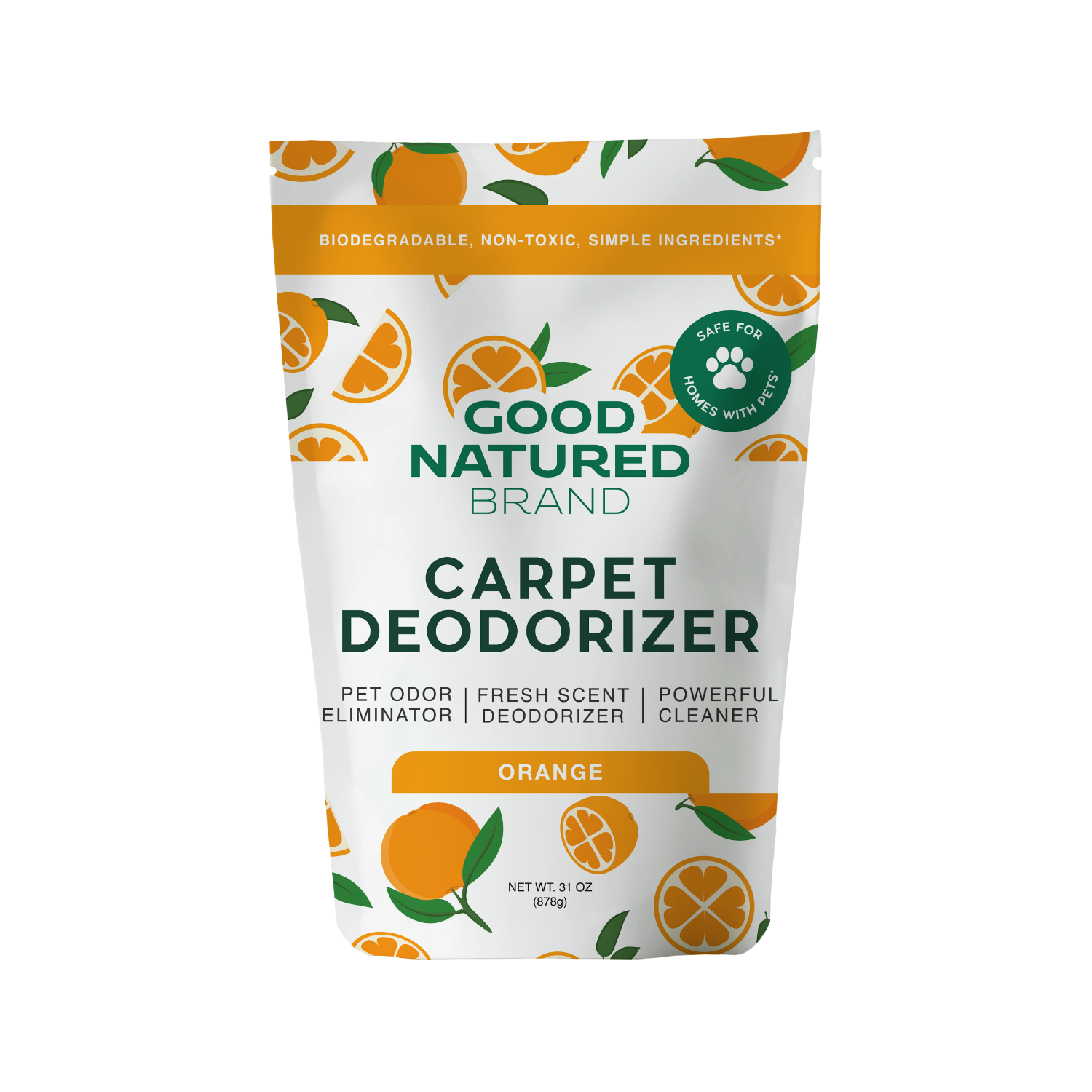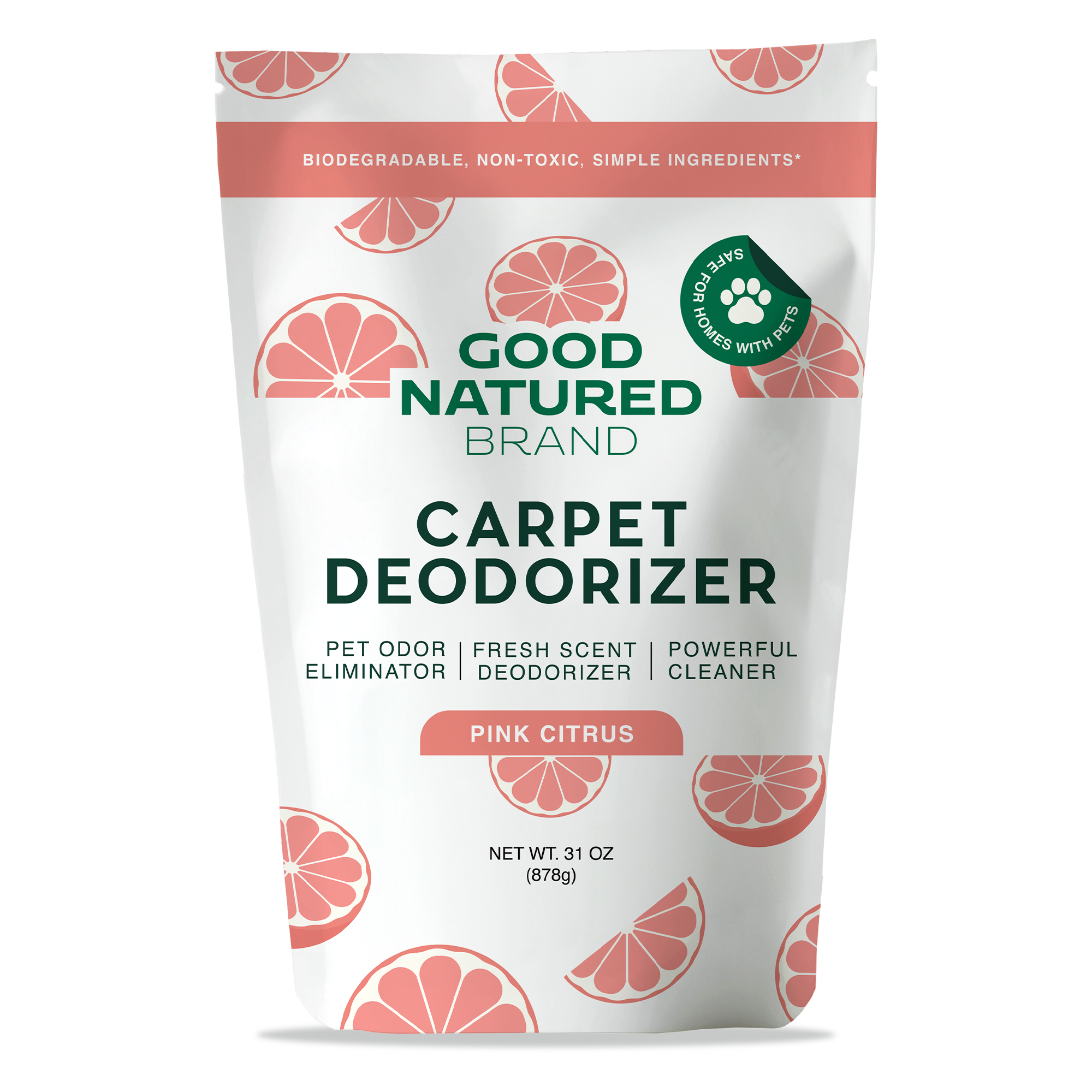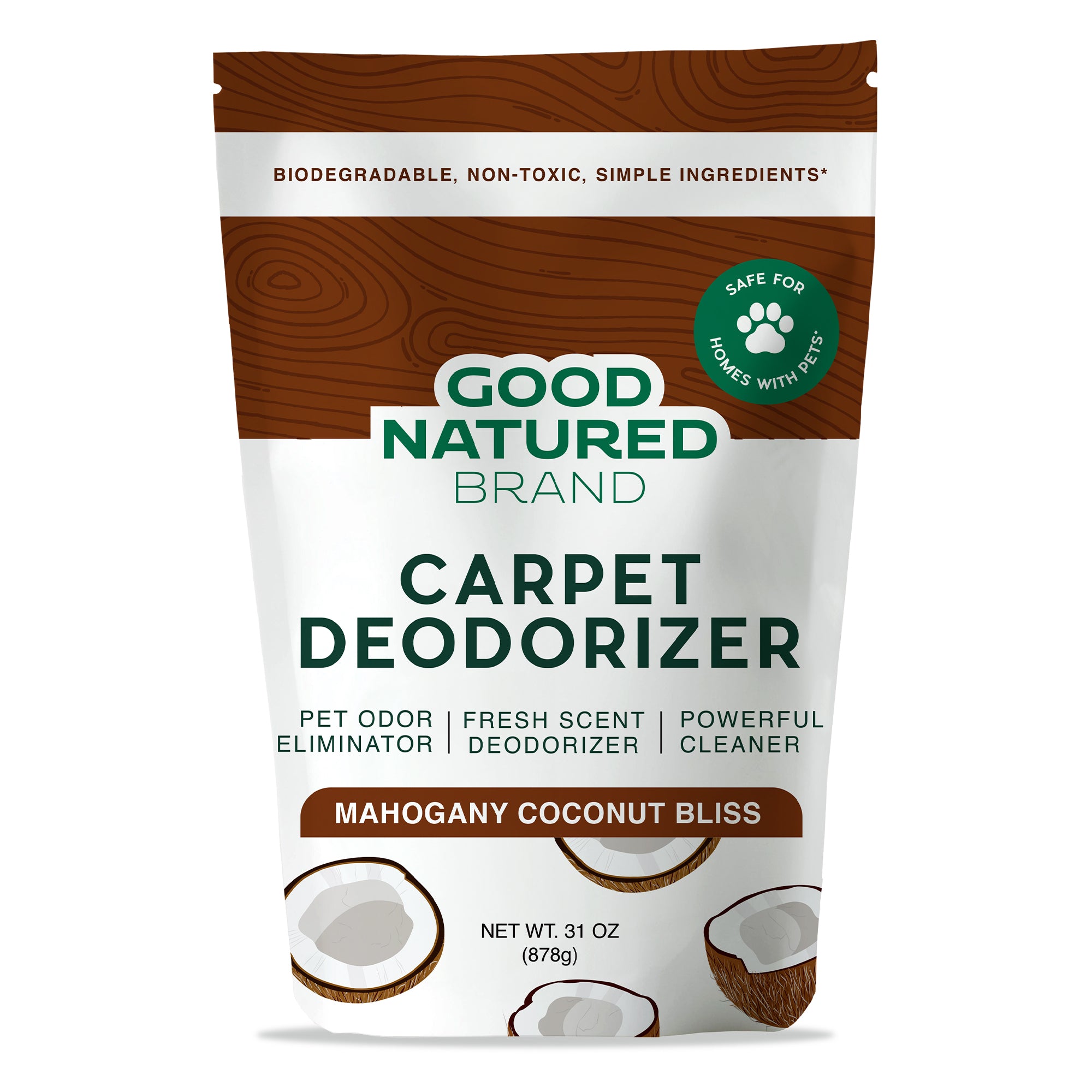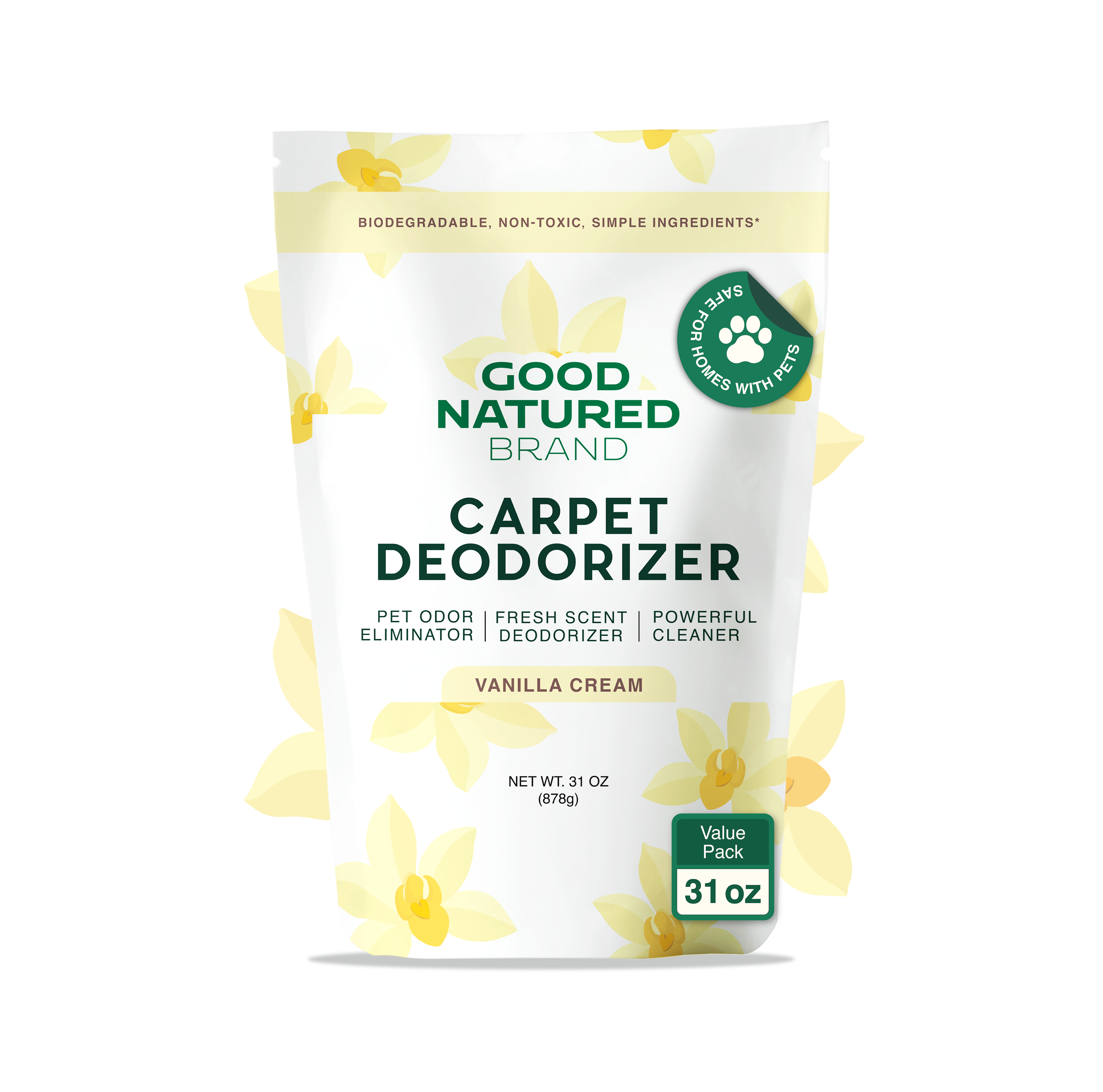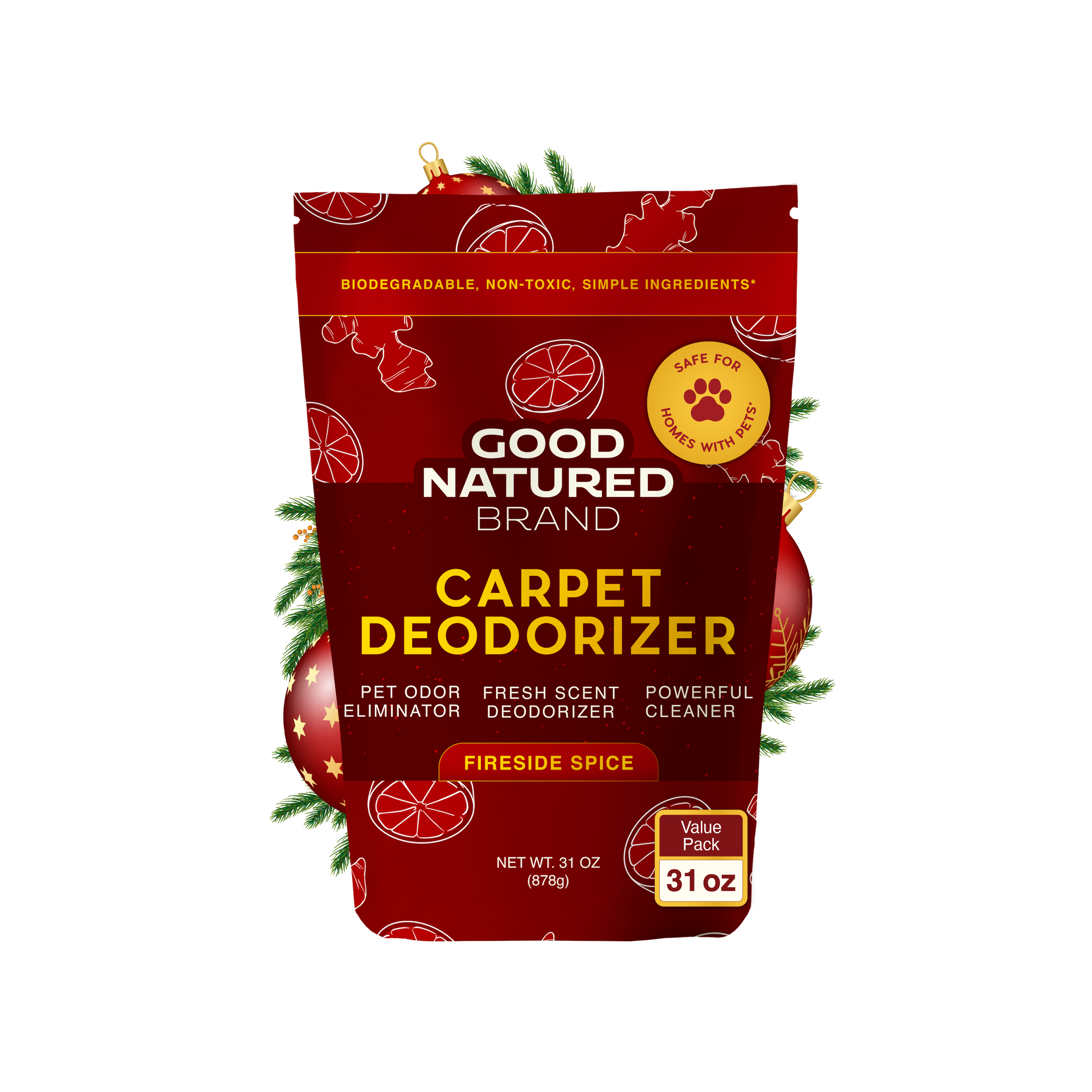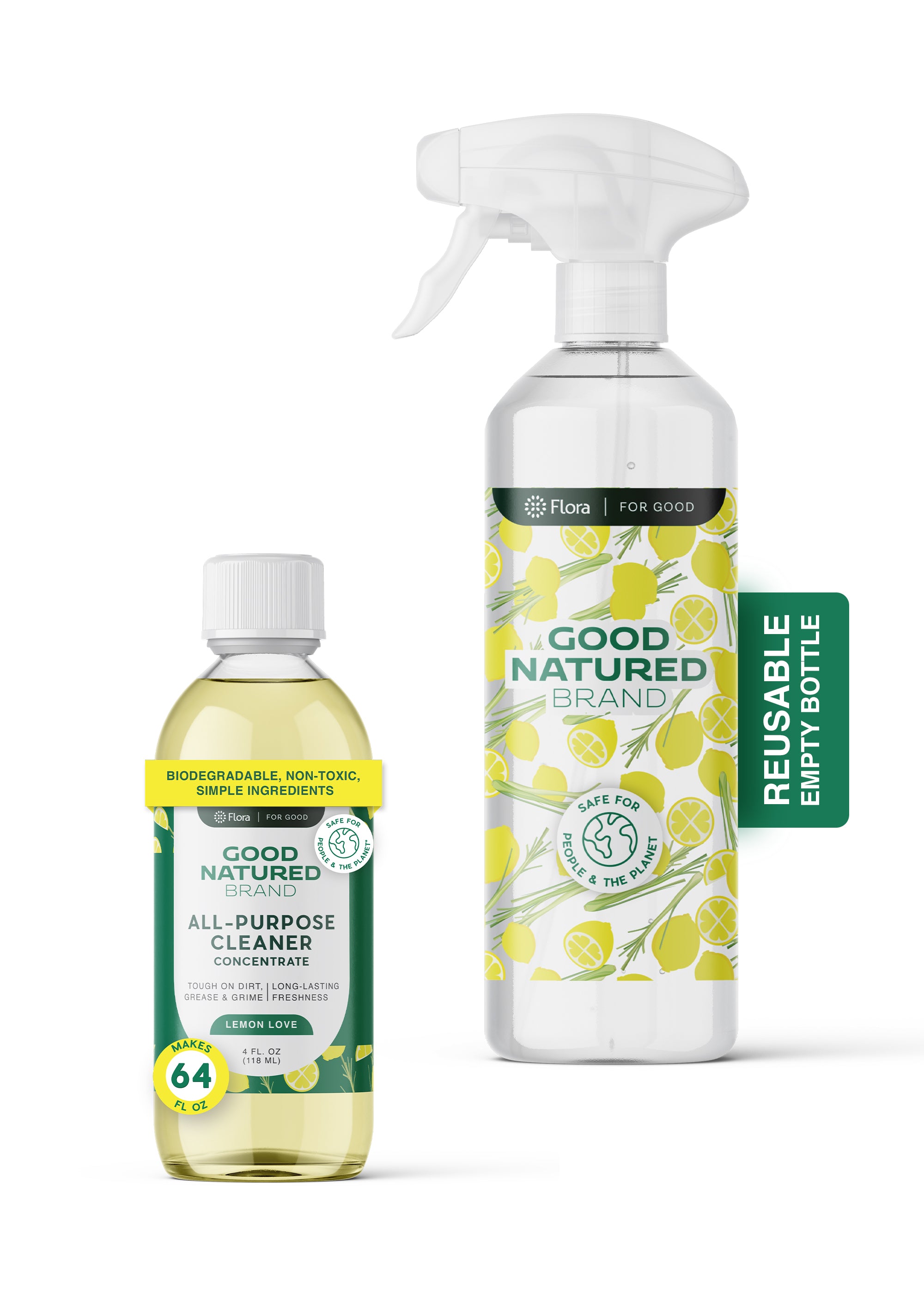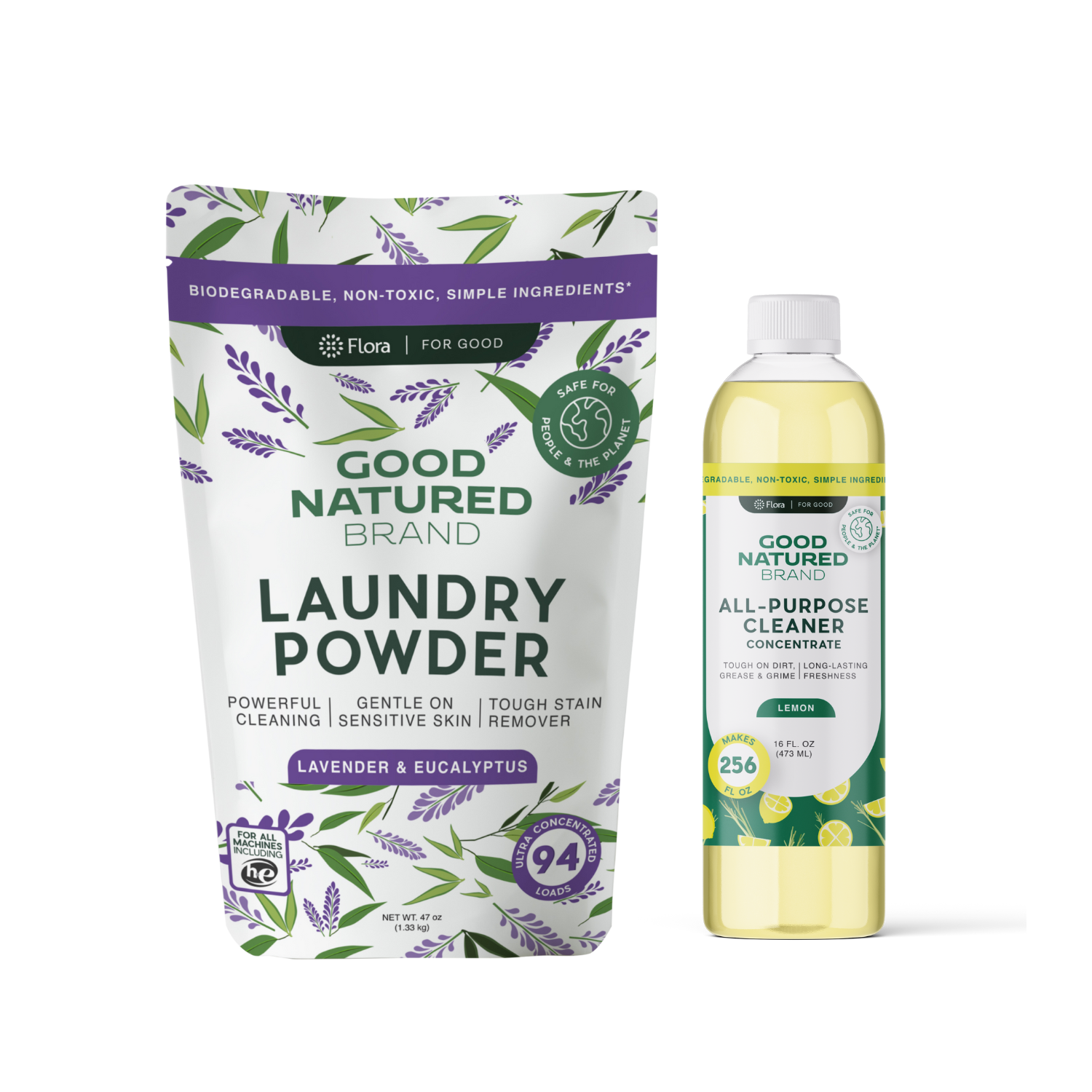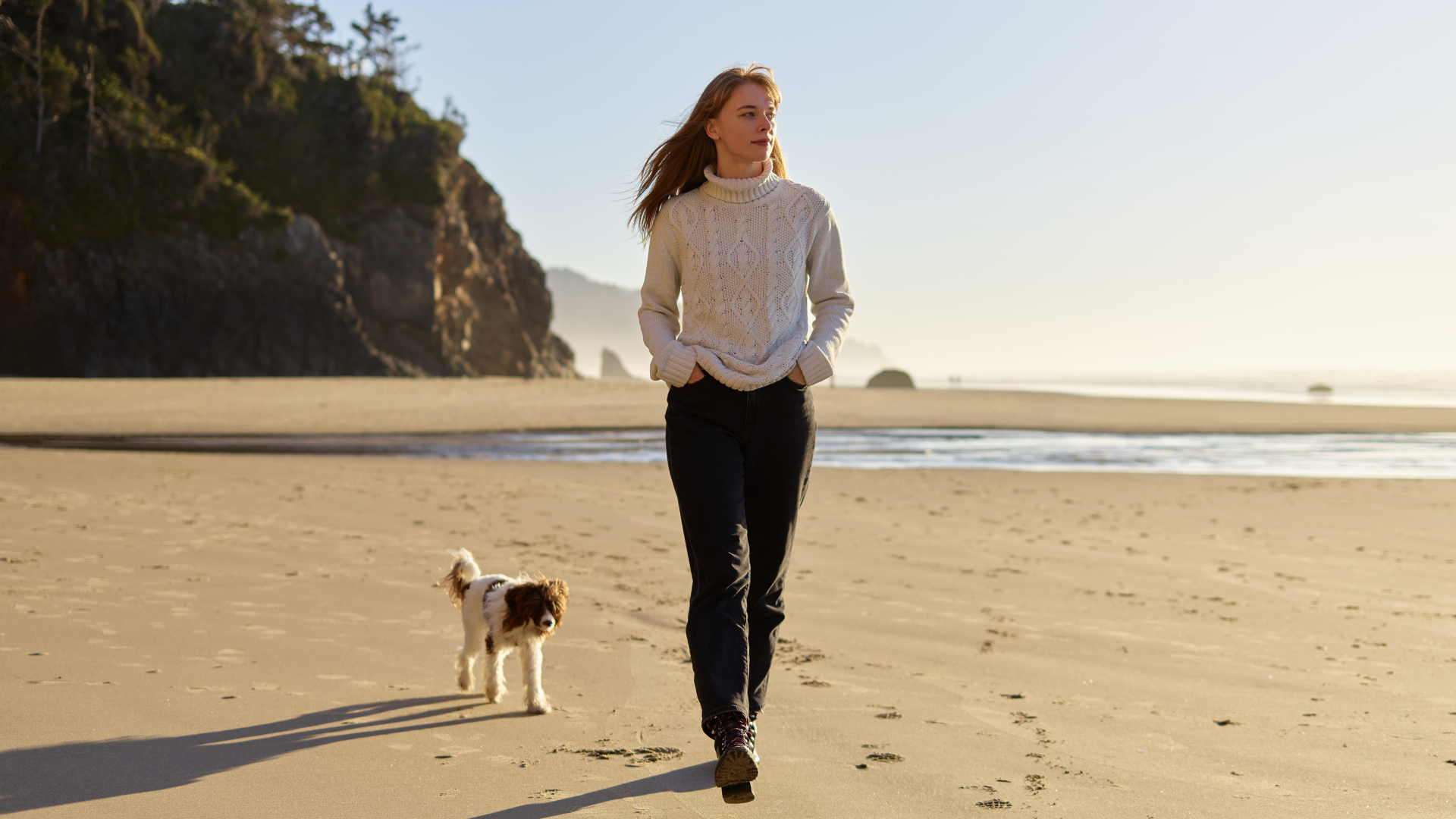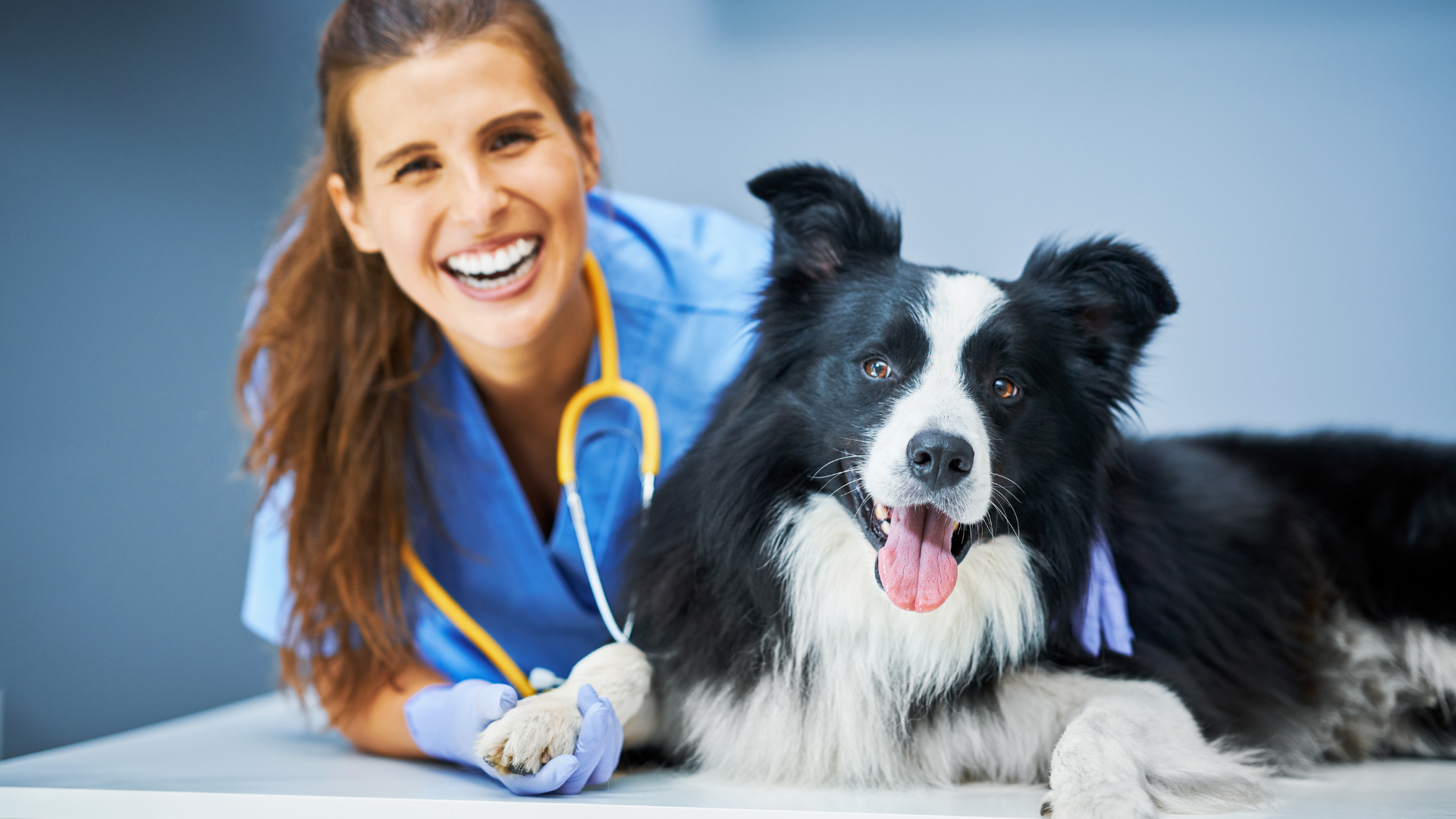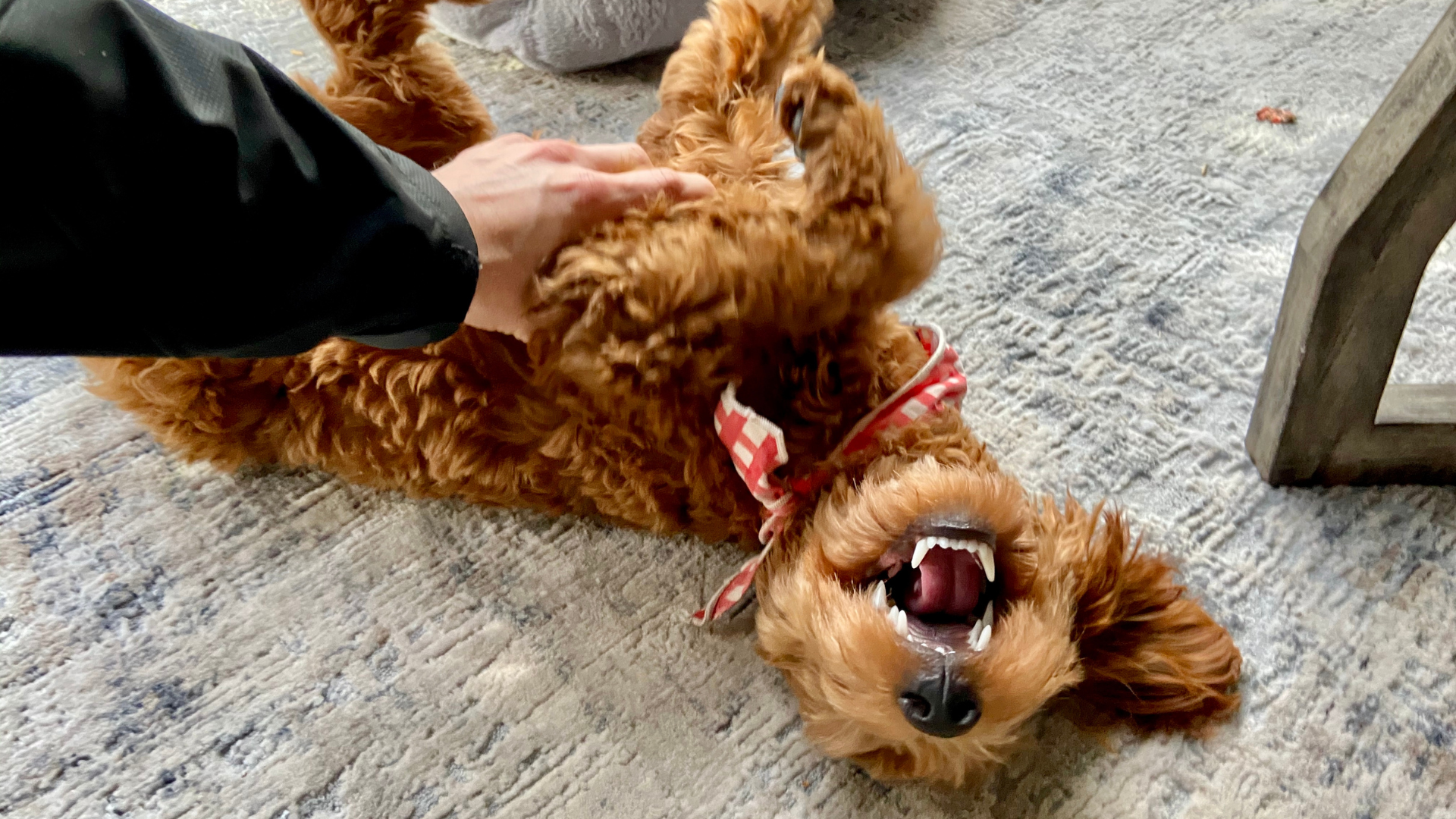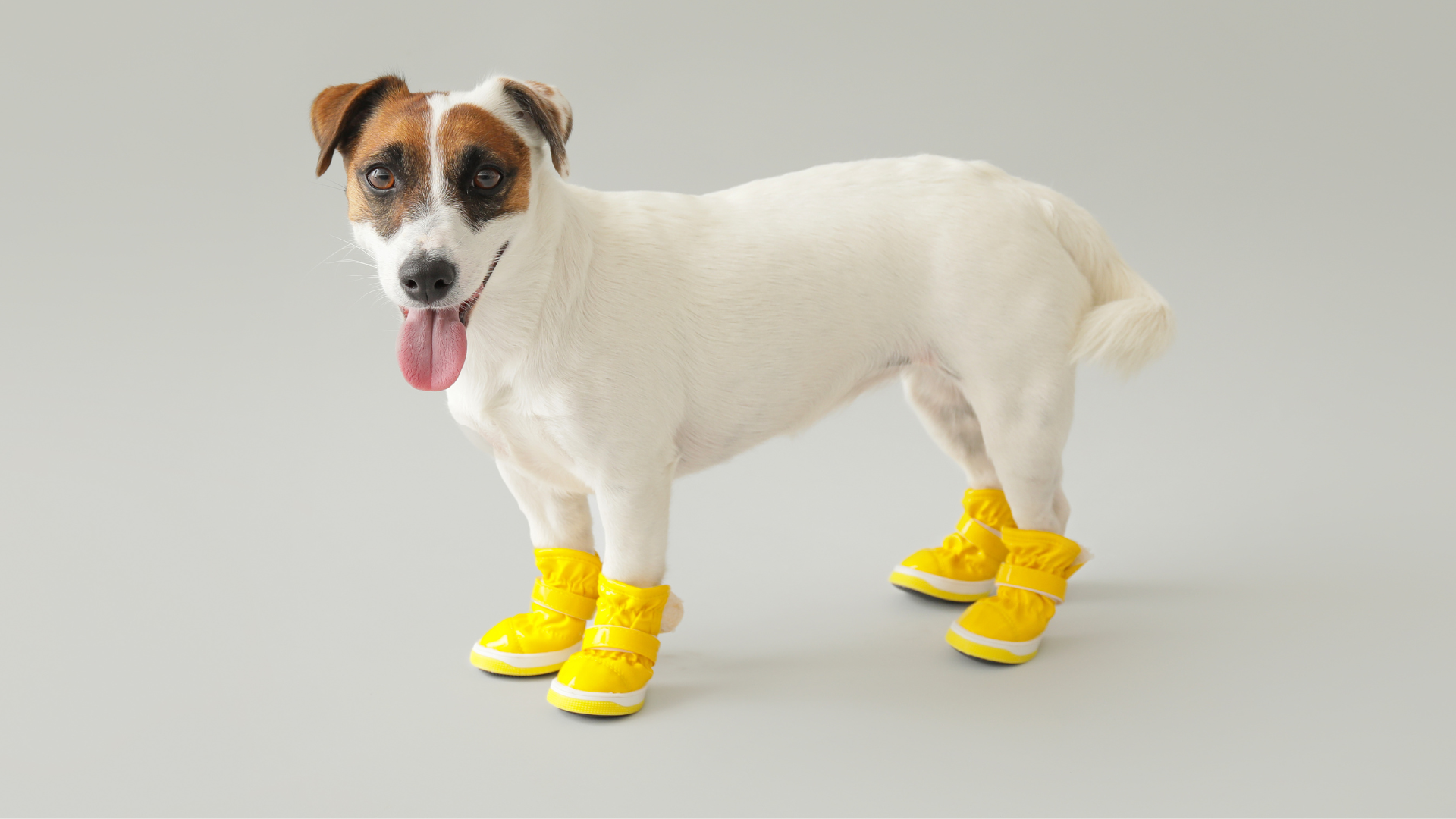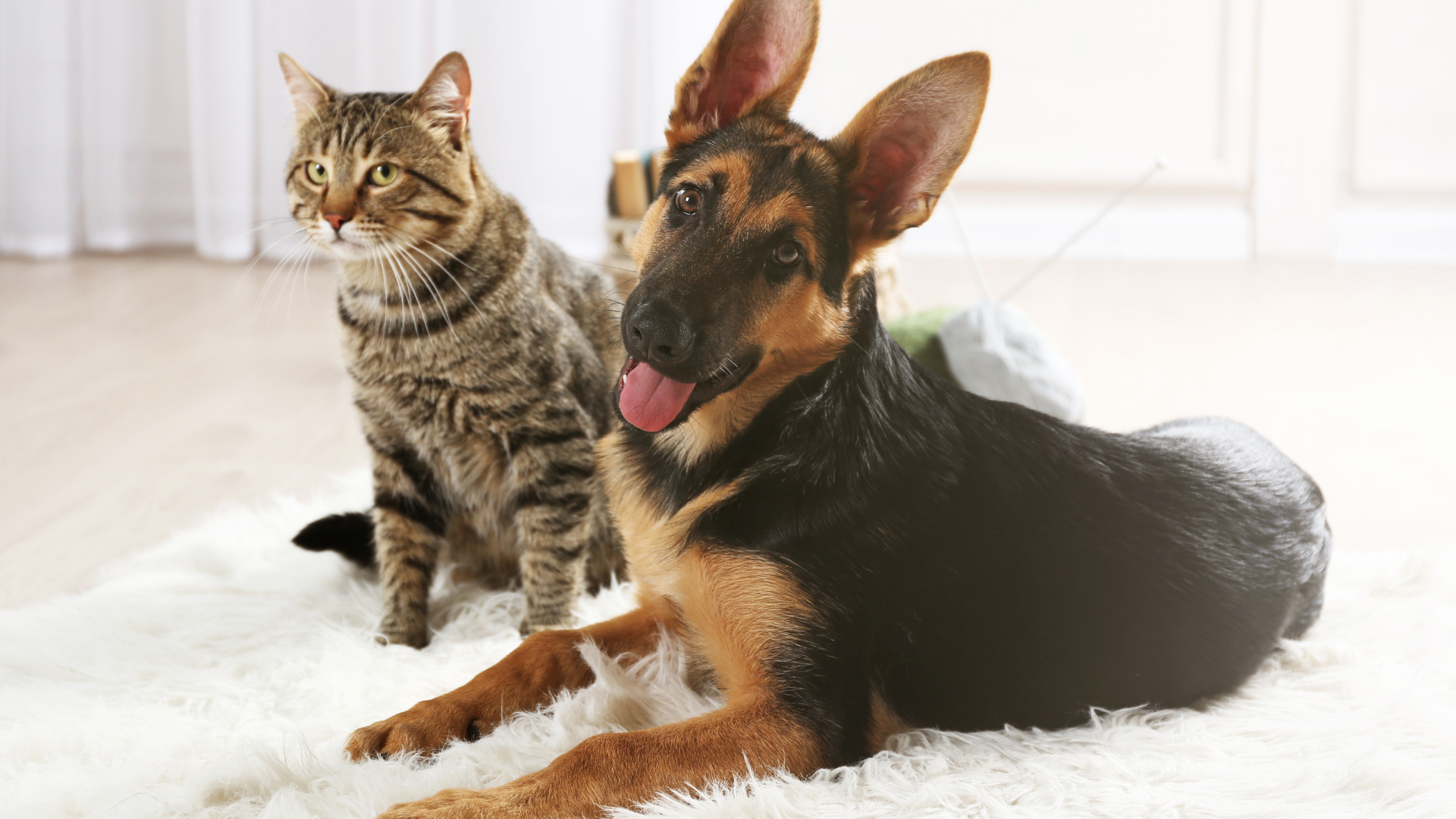If you’ve ever caught your dog eating its own poop, you’re not alone—and you’re not a bad pet parent. This unpleasant habit, known as Coprophagia, is surprisingly common in dogs. While it may seem shocking or even disgusting, there are many possible reasons behind this behavior, ranging from normal developmental stages to medical conditions or behavioral triggers.
Understanding why a dog eats its own poop is the first step to addressing it effectively. In this guide, we’ll explore the real causes of coprophagia, when it’s considered normal, and the health risks involved. Later, in Part 2, we’ll discuss how to stop it and how to clean up safely with products like Carpet Deodorizers, Laundry Powders, and All-Purpose Cleaners to prevent repeat incidents.
For more helpful tips on dog behavior and pet-safe home care, visit the Good Natured Brand Blog.
What Is Coprophagia in Dogs?
Coprophagia is the technical term for poop-eating behavior. It refers to dogs eating their own feces, another dog’s feces, or even feces from other animals like cats or wild animals. While it may seem alarming, it’s not unusual—especially among puppies.
In many cases, coprophagia is a temporary behavior that resolves on its own. However, in adult dogs, it can sometimes be linked to medical issues, anxiety, boredom, or nutritional deficiencies that require attention.
Why Does a Dog Eat Its Own Poop?
There’s no single reason dogs engage in this behavior. It often depends on their age, environment, and overall health. Let’s look at the most common causes:
Behavioral Causes
-
Boredom and lack of stimulation: Dogs left alone for long periods or without toys may eat poop simply out of boredom.
-
Attention-seeking behavior: Some dogs learn that picking up or eating poop gets a strong reaction from their owner, which can unintentionally reinforce the behavior.
-
Stress or anxiety: Changes in the household, such as moving homes, new pets, or schedule disruptions, can lead to anxiety-related coprophagia.
-
Mimicking maternal behavior: Mother dogs naturally eat their puppies’ waste to keep the den clean, and puppies may copy this behavior.
Medical Causes
Sometimes, dogs eat their own feces due to underlying health problems. Conditions that cause increased appetite or poor nutrient absorption can lead to this behavior. These include:
-
Exocrine Pancreatic Insufficiency (EPI), which affects digestion
-
Intestinal Parasites that steal nutrients from the dog’s diet
-
Diabetes Mellitus or Cushing’s Disease, which increase hunger
-
Malabsorption syndrome, where the body can’t absorb nutrients properly
If your dog’s poop-eating is new, persistent, or accompanied by weight loss, diarrhea, or vomiting, consult a veterinarian immediately to rule out medical issues.
Nutritional Deficiencies
Dogs who lack certain nutrients—especially B vitamins or digestive enzymes—may eat their feces to try to regain what’s missing. While this won’t actually help them absorb nutrients, it’s a common instinctual response when their body thinks something is lacking.
Is It Normal for Puppies to Eat Their Own Poop?
Yes, it’s actually very common for puppies to go through a poop-eating phase. Puppies are naturally curious and explore their world with their mouths. Eating poop can also be a behavior they copy from their mother, who instinctively cleans up her puppies’ feces to keep the den area sanitary and scent-free.
In most cases, puppies outgrow this habit as they mature, gain consistent housetraining, and develop better eating routines. It usually fades by the time they’re 6 to 9 months old. However, consistent training and quick cleanup are important to prevent it from becoming a long-term habit.
Risks of Dogs Eating Their Own Poop
While coprophagia may seem mostly gross, it can also carry real health risks. Eating feces can expose dogs to harmful pathogens or parasites, especially if the feces are from other animals.
-
Parasitic infections: Poop can carry Roundworms, Hookworms, or Giardia that infect your dog’s digestive system.
-
Bacterial infections: Poop can harbor Salmonella or Clostridium perfringens, which cause gastrointestinal illness.
-
Viral diseases: Exposure to contaminated feces increases the risk of Parvovirus, a highly contagious and sometimes fatal disease.
-
Behavioral reinforcement: If not addressed early, dogs may learn to seek out feces habitually, making it harder to break the cycle later.
Because of these risks, it’s important to intervene early, clean up quickly, and consult your veterinarian if you suspect illness or if the behavior becomes persistent.
How to Tell If It’s Behavioral or Medical
Determining the root cause is key to stopping coprophagia effectively. Here are some clues to help you identify whether it’s more likely behavioral or medical:
Behavioral signs:
-
Dog is otherwise healthy and at a normal weight
-
Poop-eating happens during boredom, stress, or lack of stimulation
-
Often happens when unsupervised or to get your attention
Medical signs:
-
Weight loss despite eating well
-
Constant hunger or food obsession
-
Vomiting, diarrhea, or other signs of digestive upset
-
Dull coat or low energy
If you see any of the medical signs above, schedule a vet check before trying training or behavioral changes. Addressing medical causes is essential before working on behavioral modification.
How to Stop a Dog From Eating Its Own Poop
Now that we’ve explored why dogs eat their own poop, it’s time to focus on how to stop this behavior and prevent it from returning. Breaking the cycle of Coprophagia takes patience, consistency, and a combination of strategies that address both the underlying causes and the environment.
By combining veterinary guidance, positive reinforcement, and proper cleanup methods, you can help your dog break this habit and maintain a cleaner, healthier home. For additional dog care tips, visit the Good Natured Brand Blog.
Rule Out Medical Causes First
Before trying behavioral training or deterrents, schedule a vet check to rule out health issues. Conditions like Exocrine Pancreatic Insufficiency, Intestinal Parasites, Diabetes Mellitus, or Cushing’s Disease can trigger increased hunger or nutrient-seeking behaviors.
Your veterinarian may recommend diagnostic tests, dietary changes, or supplements to correct deficiencies. Addressing any underlying medical cause is the critical first step in stopping poop-eating for good.
Address Nutritional Gaps in Your Dog’s Diet
Some dogs eat their feces due to nutritional imbalances. Feeding a high-quality, balanced diet ensures your dog gets all essential vitamins, minerals, and digestive enzymes.
-
Ask your vet about adding a canine multivitamin or enzyme supplement if deficiencies are suspected.
-
Provide regular meals on a consistent schedule to help reduce food obsession.
-
Offer high-protein treats and enrichment toys to keep your dog satisfied and mentally stimulated.
Proper nutrition can often reduce the instinctual drive to re-ingest feces.
Increase Physical and Mental Enrichment
Boredom and stress are major behavioral triggers of coprophagia. Keeping your dog’s mind and body active reduces anxiety and curbs unwanted habits.
-
Provide at least two daily walks and active play sessions.
-
Use puzzle feeders, snuffle mats, or treat-dispensing toys during mealtimes.
-
Incorporate basic training sessions or teach new tricks to keep your dog mentally engaged.
-
Rotate toys regularly to maintain interest and reduce monotony.
A mentally fulfilled dog is far less likely to engage in compulsive behaviors like poop-eating.
Use Positive Reinforcement to Break the Habit
Punishment rarely works and can make the behavior worse by increasing stress. Instead, reward your dog for ignoring feces and moving away from it.
-
Supervise potty breaks closely.
-
The moment your dog finishes defecating, redirect their attention with a treat, toy, or praise.
-
Reward them for coming to you instead of turning to investigate the feces.
-
Be patient—breaking the habit can take several weeks of consistent reinforcement.
Over time, your dog will learn that leaving poop alone leads to positive outcomes.
Keep the Environment Clean to Remove Temptation
The easiest way to prevent coprophagia is to make sure there’s nothing for your dog to eat. Consistent, immediate cleanup removes temptation and helps break the cycle.
Step-by-Step Cleaning Method
-
Pick Up Waste Right Away
Carry a bag and pick up your dog’s poop immediately during walks or outdoor potty breaks. Dispose of it in a sealed bin. -
Clean Soiled Indoor Areas Promptly
If your dog has an accident indoors, remove solids and clean thoroughly to eliminate odors. On carpets or rugs, apply a pet-safe Carpet Deodorizer to neutralize lingering smells and prevent repeat behavior. -
Wash Contaminated Fabrics
If feces get on your dog’s bedding, blankets, or towels, wash them using Laundry Powders. These lift organic residues and remove odor completely, reducing the chance of re-attraction. -
Disinfect Hard Surfaces
For accidents on hard floors or tiles, scrub thoroughly using a pet-safe All-Purpose Cleaner to eliminate bacteria and odor markers.
Eliminating every trace of scent is essential. Dogs are drawn back to areas that smell like feces, so thorough cleaning helps break the association.
Training Tips to Prevent Poop Eating
Combining clean-up with training makes the fastest impact. Here are some training strategies that can reinforce good behavior:
-
Leash your dog during bathroom trips so you can redirect immediately after they eliminate.
-
Practice “leave it” and “come” commands using treats to reward obedience.
-
Redirect their attention immediately after they poop with a toy, treat, or praise.
-
Avoid giving access to unsupervised areas where poop might be present, such as litter boxes or yards.
-
Stay patient and consistent—training habits takes time but pays off long-term.
Products and Supplements That May Help
Some owners find success using deterrent products alongside training and cleanup:
-
Enzyme-based stool deterrents: These change the taste and smell of feces to make it unappealing.
-
Digestive enzyme supplements: Can help dogs who have trouble absorbing nutrients, reducing their instinct to eat poop.
-
Taste-aversion additives: Used under veterinary guidance, these can discourage coprophagia safely.
While these tools can support your efforts, they work best combined with behavior modification and consistent cleaning routines.
When to Seek Professional Help
If your dog continues to eat its poop despite your best efforts, professional support can make a big difference.
-
Veterinarian: Can rule out undetected medical causes and prescribe supplements or medications.
-
Certified canine behaviorist or trainer: Can develop a customized plan to modify the behavior using positive reinforcement and environmental management.
-
Follow-up care: Regular check-ins with professionals help track progress and prevent relapse.
Persistent coprophagia can become ingrained, so early professional intervention is often the fastest path to success.
Final Thoughts on Why a Dog Eats Its Own Poop
While it can be frustrating and unpleasant, coprophagia is a common canine behavior—and one that can usually be resolved with time, consistency, and the right approach.
By ruling out medical causes, improving your dog’s nutrition and enrichment, reinforcing positive behavior, and cleaning thoroughly with Carpet Deodorizers, Laundry Powders, and All-Purpose Cleaners, you can break the cycle and keep your home clean and safe.
Most importantly, remember to be patient and compassionate. Dogs don’t eat their poop to upset you—they do it when something in their world isn’t quite right. With your guidance, they can unlearn the habit and return to healthier behaviors.
For more helpful pet care guides and home-cleaning tips, visit the Good Natured Brand main page.
